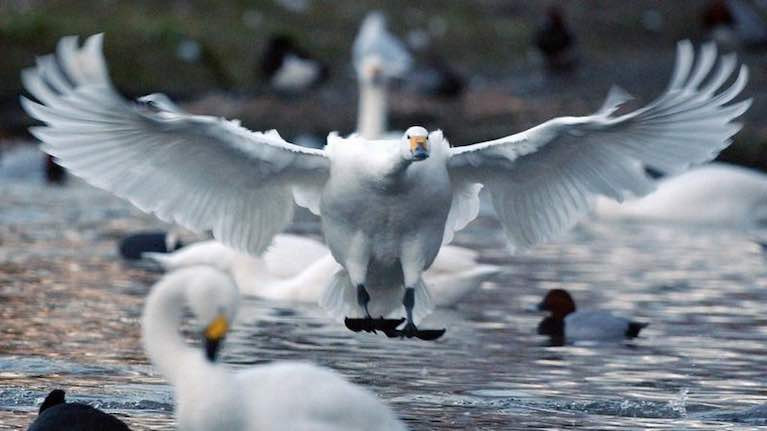Displaying items by tag: Lough Beg
Dead Swan on Lough Beg Found to Have Bird Flu
The BBC has reported that a wild swan found dead earlier this week at Lough Beg near Toomebridge, a small village on the North West corner of Lough Neagh has tested positive for Bird Flu. Lough Beg is a small freshwater lake on the border between County Londonderry and County Antrim.
The Lower River Bann flows into it from Lough Neagh at the southern end and continues its route to the sea from the northern end. It has been designated a Ramsar Site which is a wetland site designated to be of international importance under the Ramsar Convention.
Preliminary results confirmed that the swan had a similar strain of the disease to that found in poultry flocks and wild birds in Britain. Public health officials have advised that the risk to public health from this strain of avian influenza is very low, as is the threat to food safety. A dead falcon found in County Limerick also tested positive in recent days.
The chief vet Dr Robert Huey urged poultry keepers to tighten their biosecurity measures to stop transmission to commercial flocks.
The swan was found by environmentalist Chris Murphy who was assessing the impact of A6 roadworks on overwintering birds at the lough - an internationally important protected site. Further tests will now be carried out to establish whether the disease is a highly pathogenic strain or one which is less virulent.
On Wednesday a bird flu prevention zone was declared across Britain after the discovery of the disease there. Where it is detected in poultry flocks, the birds are destroyed, and prevention zones are established around affected premises. It can also lead to restrictions on trade.
Northern Ireland's Chief Vet Robert Huey urged anyone with poultry to tighten their biosecurity to prevent interaction between wild birds and their flocks.





























































